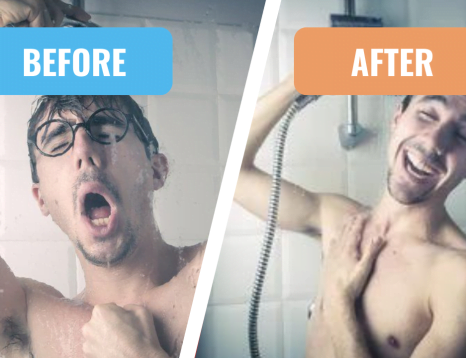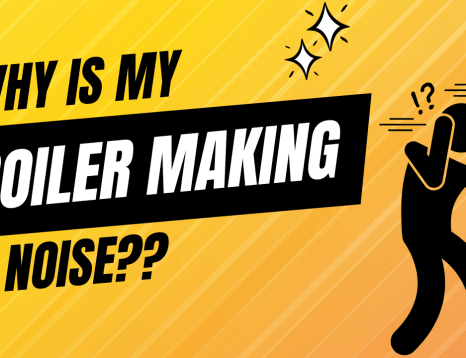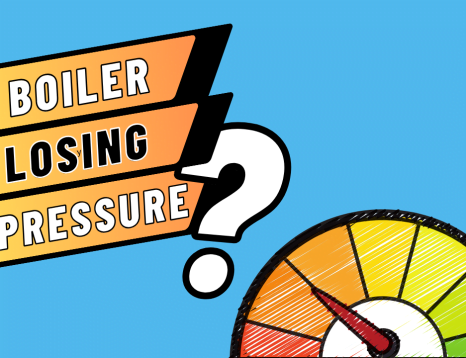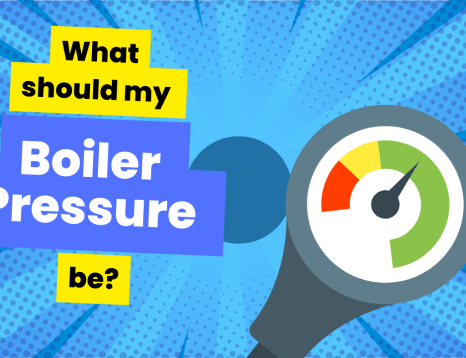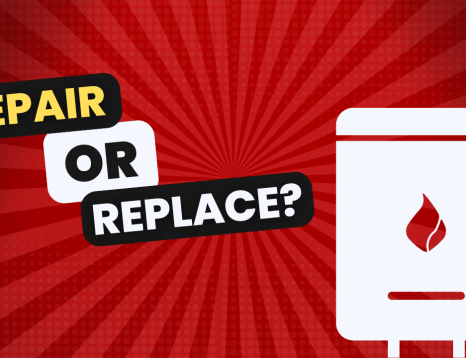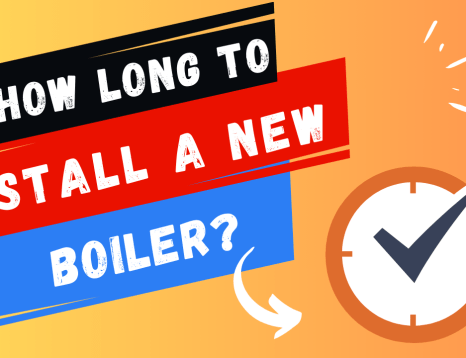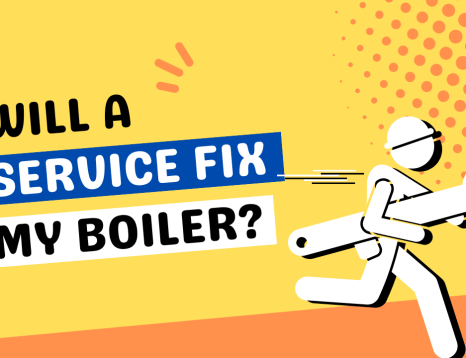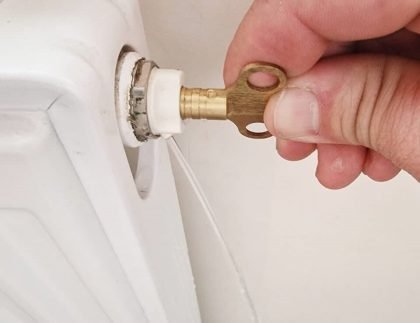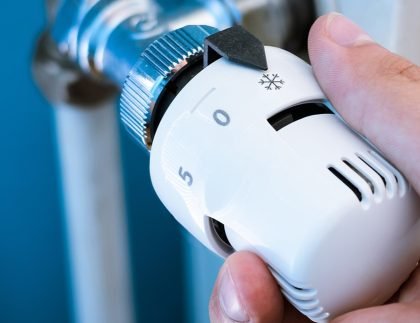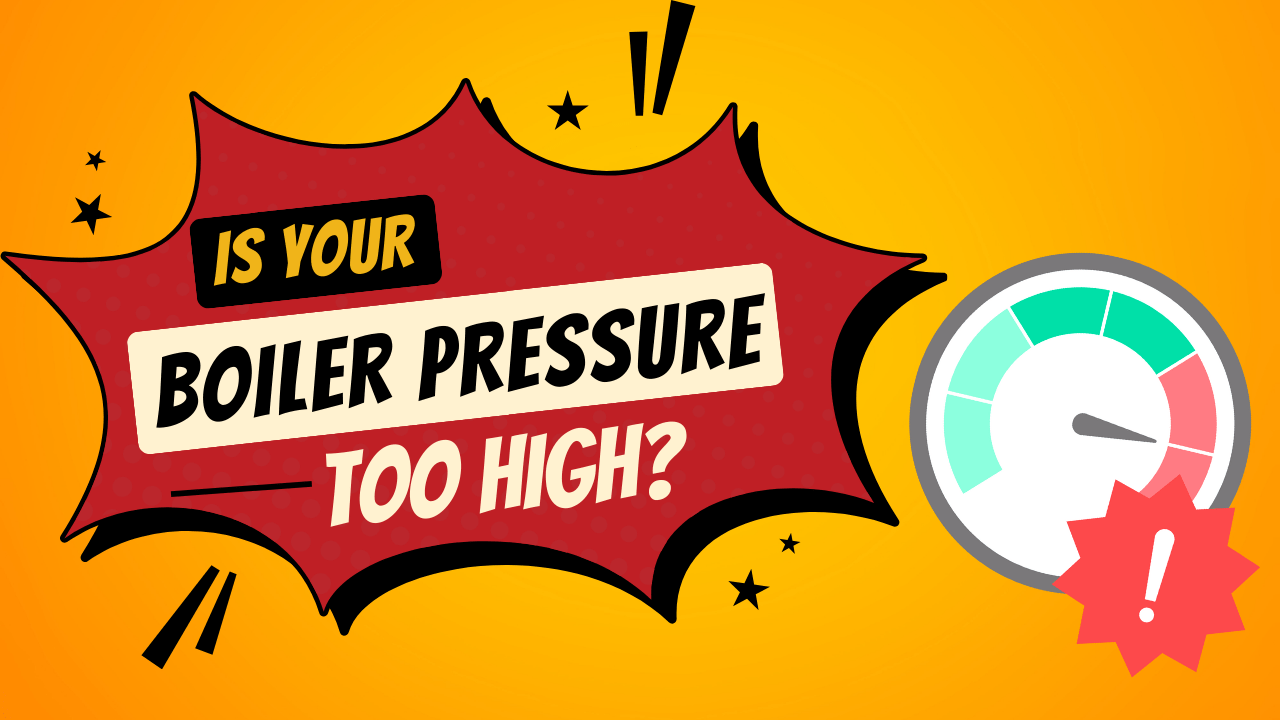
Why Is My Boiler Pressure Too High?
Noticed your boiler pressure creeping past 2.5 or even hitting 3.0 bar? That’s a sign something’s not right. High pressure can affect your boiler’s efficiency — and if left too long, it can even cause damage. Here’s what might be going on, and how to fix it safely.
What’s the Normal Boiler Pressure?
Most modern combi boilers are happiest when the pressure is:
- Cold: Between 1.0 and 1.5 bar
- Heating up: Around 2.0 bar is typical
If it keeps climbing above 2.5–3.0 bar — or the pressure relief valve starts dripping — your boiler’s under strain, and it’s time to investigate.
Common Reasons for High Boiler Pressure
1. Overfilled the System
What causes it: Adding too much water when topping up with the filling loop.
Fix it: Bleed a radiator to gently release some pressure. Keep an eye on the gauge — you’re aiming for around 1.2 bar when cold. If it drops too far, top it up slowly.
2. Faulty Pressure Relief Valve (PRV)
What causes it: If the valve that’s supposed to release excess pressure gets stuck, it can’t do its job.
Fix it: This one’s for a pro. A Gas Safe engineer can replace the faulty valve safely.
3. Expansion Vessel Issues
What causes it: The expansion vessel helps absorb water pressure as your system heats up. If it’s lost charge or failed, pressure will spike.
Fix it: Needs to be repressurised or replaced by a qualified heating engineer.
4. Sludge or Blockages
What causes it: Sludge in the pipework or radiators can cause pressure to build by restricting flow.
Fix it: A proper power flush or chemical flush can help clear the system and reduce strain.
5. Faulty Filling Loop
What causes it: If the filling loop is stuck open or leaking, water can keep feeding into the system — pushing the pressure up.
Fix it: Make sure both valves are fully closed. Still climbing? You might need the loop replaced.
Is It Dangerous?
Boilers have built-in safety systems, so it’s rare for high pressure to cause serious damage straight away. But if it stays high over time, you could end up with:
- Leaky pipework or boiler seals
- Damage to internal components
- Reduced lifespan of your heating system
Better to deal with it early — especially if you’re seeing repeat issues.
How to Safely Reduce Boiler Pressure
- Turn off the boiler and let it cool.
- Bleed one radiator slowly using a bleed key and towel.
- Watch the gauge — you want it back around 1.2 bar when cold.
- Top up again if needed, but go slow and steady.
Important: Don’t bleed too many radiators at once, and never mess with the boiler’s internal components unless you’re trained to do so.
Still Having Pressure Problems?
If the pressure keeps climbing or you’re not sure what’s causing it, we’re here to help. Our engineers can check your system, spot the fault, and get it sorted quickly — whether it’s a simple adjustment or a part that needs replacing.
We also offer regular boiler servicing to prevent these issues before they start.
📞 Speak to a local engineer: 01383 660098
🌐 Book online: Boiler Repairs in Dunfermline
Serving Dunfermline, Kirkcaldy, South Queensferry and surrounding areas — no fuss, no guesswork, just honest help.
